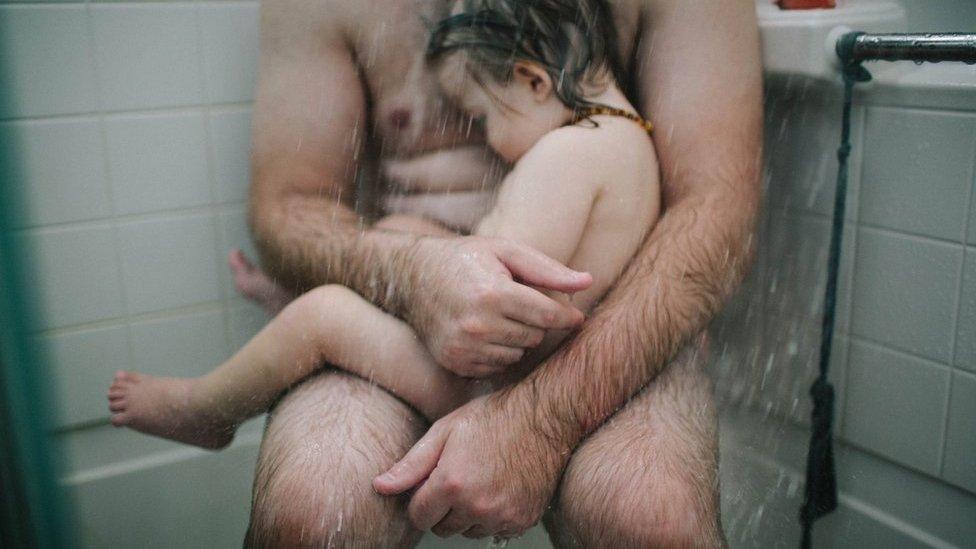Gallery denies censorship after removing Victorian nymphs painting
- Published
Curator Clare Gannaway tells BBC Radio 4's The World at One the picture is "uncomfortable"
A gallery has temporarily removed a Victorian painting of naked adolescent girls in a move to "encourage debate" about how such images should be displayed in the modern age.
Manchester Art Gallery has taken down Hylas and the Nymphs by JW Waterhouse.
Curator Clare Gannaway said there were "tricky issues about gender, race and representation" in the gallery. "But we want to talk about that with people."
She denied accusations that the gallery was censoring the 1896 picture.
The decision has already sparked a heated reaction, however, with many on social media accusing the gallery of being puritanical and too politically correct.
The painting was one of a number of similar pictures in a gallery area titled In Pursuit of Beauty, which Gannaway described as "very old-fashioned" because it depicts women as "either as passive beautiful objects or femmes fatales".
A blog on the gallery website, external says: "Let's challenge this Victorian fantasy!"
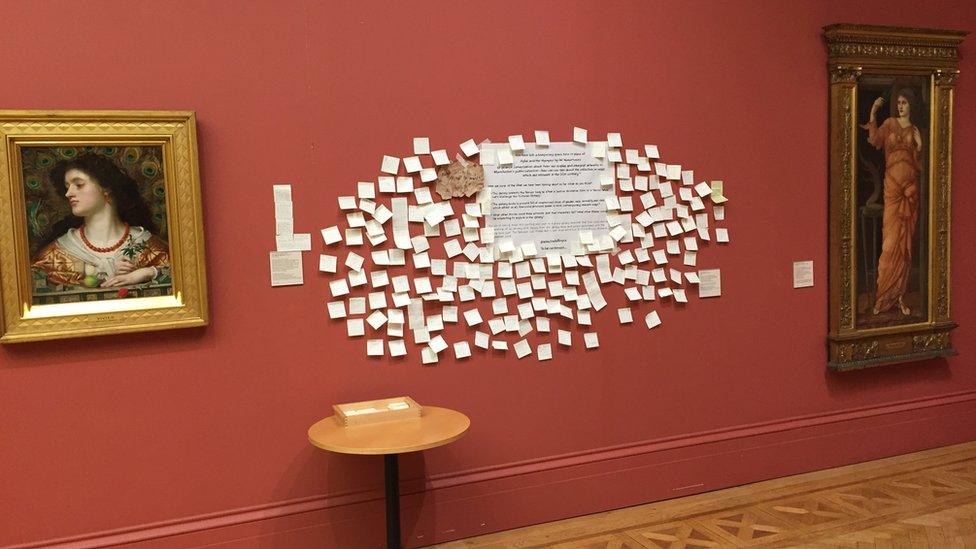
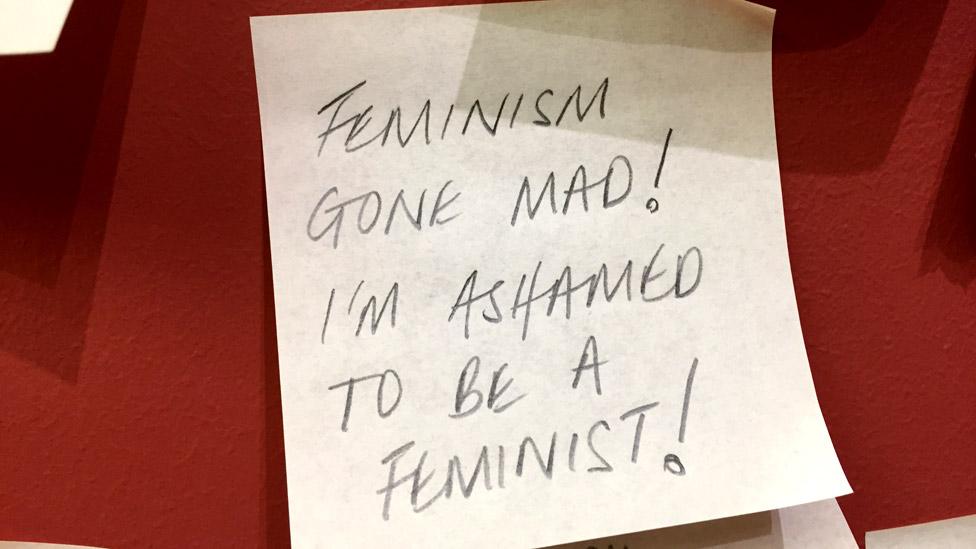
Visitors can stick notes to the wall where the painting hung
Gannaway told BBC News: "Views of history, views of art history and views about representation have moved on and the gallery probably hasn't in the way that it should have done.
"And it's not about saying these things can't exist in a public gallery - it's about saying, maybe we just need to challenge the way these paintings have been read and enable them to speak in a different way."
The decision was taken by gallery staff with artist Sonia Boyce, and the painting's removal during an event on Friday was filmed to be made into a new piece of video art for Boyce's exhibition at the gallery, external in March.
#MeToo impact
The decision was influenced by recent movements against the objectification and exploitation of women, Gannaway said.
"We've talked a lot about the President's Club and MeToo campaigns and it's a credit to those campaigns that they've had such an impact," she said. "I would like to think however that even if those things hadn't existed in the wider world that we would have been still encouraging this debate and discussion."
Visitors have been invited to write their views about the decision on sticky notes and post them in the vacant space.
Comments on the notes ranged from "Feminism gone mad!" to "Create or display art that reflects current ideologies alongside classical pieces. There is room for both."
Clare Gannaway said: "We want to see this as the start of a process, not an end point. But what we're not doing is censoring."
'This is killing any debate'
There were strong reactions on social media. "Removing art due to political concerns is exactly censorship", wrote Gary Brooks on Twitter, external.
"I think you can spark a debate without removing the painting," said Ben Perkins, external.
Professor Liz Prettejohn, who curated a Waterhouse exhibition at the Royal Academy in London in 2009, told BBC News: "This is a painting that people love and the most ridiculous thing is the claim that somehow it's going to start a debate to take it out of public view.
"Taking it off display is killing any kind of debate that you might be able to have about it in relation to some of the really interesting issues that it might raise about sexuality and gender relationships.
"The Victorians are always getting criticised because they're supposed to be prudish. But here it would seem it's us who are taking the roles of what we think of as the very moralistic Victorians."
Postcards of the painting have also been taken out of the gallery shop.
The furore comes two months after two sisters started a petition asking the Metropolitan Museum of Art in New York to remove, or at least reimagine the way it presented, a painting by Balthus of a neighbour's daughter in an erotic pose.
The sisters said the Met was "romanticising voyeurism and the objectification of children".
The museum refused to remove it, external, saying it wanted to encourage "the continuing evolution of existing culture through informed discussion and respect for creative expression".

Follow us on Facebook, external, on Twitter @BBCNewsEnts, external, or on Instagram at bbcnewsents, external. If you have a story suggestion email entertainment.news@bbc.co.uk, external.
- Published1 March 2017
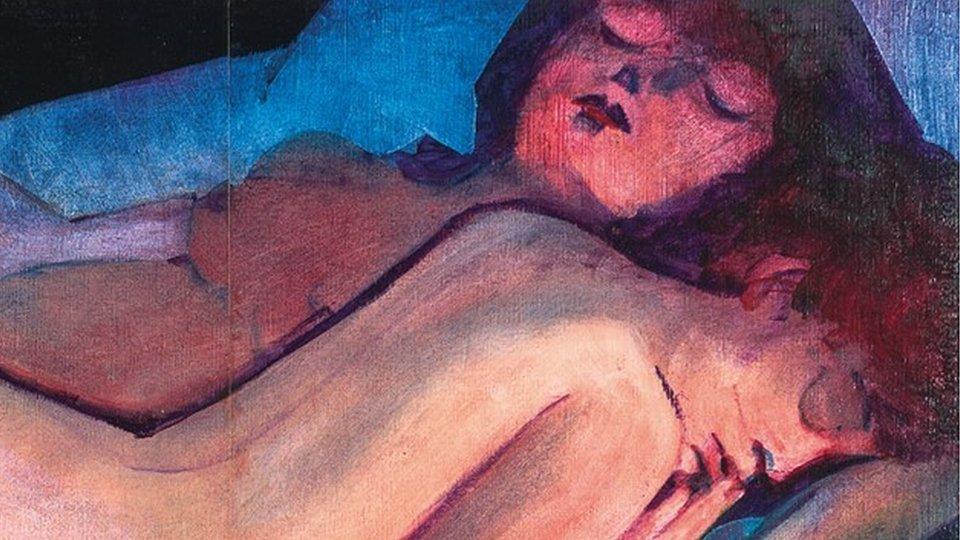
- Published14 February 2017
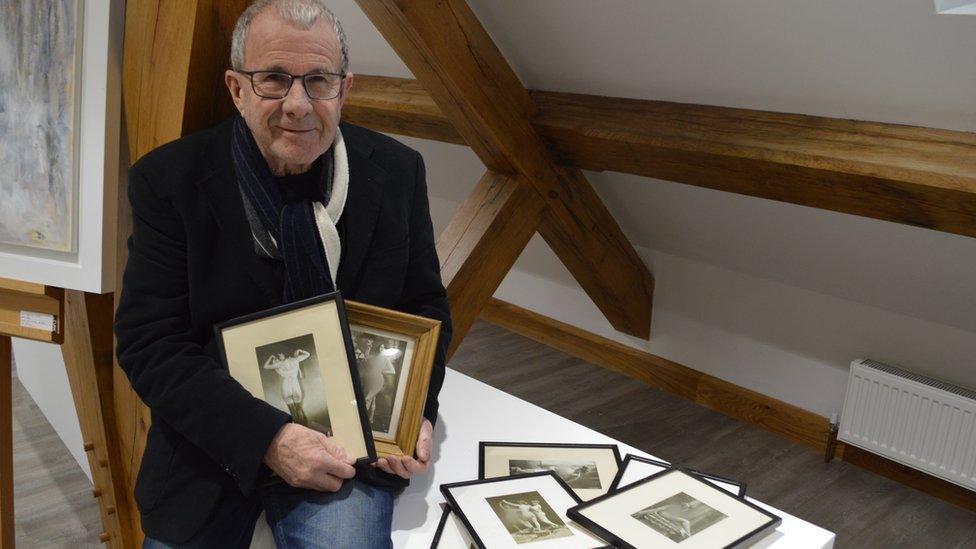
- Published20 May 2016
